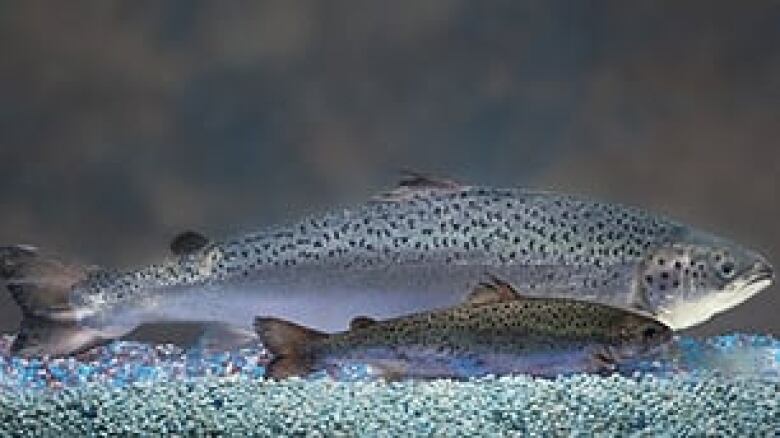Genetically modified salmon's safety defended

The head of a company trying to get its genetically modified salmon approved for sale in the U.S. is disappointed by public reaction to reports the product is safe.
A coalition of food and environmental groups has come together to fight efforts by Aqua Bounty to have its genetically modified salmon approved by the U.S. Food and Drug Administration. The U.S.-based company has a major salmon-rearing operation in Prince Edward Island.
Several genes have been added tomakethe salmon grow twice as fast.
The FDA released documents earlier this monththat saidthe salmon is safe to eat. But thecoalition working against Aqua Bounty says the food safety investigation wasn't rigorous enough, with small sample sizes and a lack of long-term studies. The coalition also said there should have been a more exhaustive environmental review.
"We believe that they're either ill-informed, or making statements that are a disservice both to the FDA and to the company," said Aqua Bounty CEO Ronald Stotish.
Stotish said the company followed food safety procedures and provided the data required by the FDA. He also feels it has covered concerns about the fish escaping and breeding with wild stocks.
Ninety nine per cent of the fish are sterile, and they are raised in tanks on land, Stotish said. Even if they escaped, he said, they'd have difficulty surviving as domesticated animals. The salmon are used to being fed pellets by hand.
" We think we've gone to unprecedented lengths to mitigate all the potential environmental risks," he said. "And we think this is not only a safe, but an environmentally sustainable product."
Still, Stotish expects more opposition atmeetings.
"I expect, to some extent, the public meeting will be subverted by a small but vocal [group of] people who are opposed to new technology," he said.
Those meetings start in Maryland on Sunday, the next step in the FDA's process to decide whether to approve the genetically modified fish for U.S. dinner plates.












_(720p).jpg)


 OFFICIAL HD MUSIC VIDEO.jpg)
.jpg)



























































































